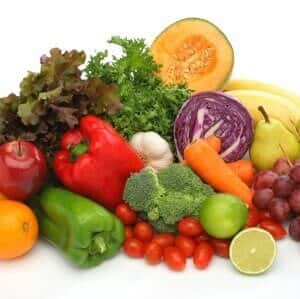
Diet and fitness experts are creating a class of healthy outcasts–people you wouldn’t want to mingle with after meals. Their enthusiasm for grains, beans, fruits and vegetables is commendable, but friends and loved ones may have to suffer the consequences.
The problem is gas.
Loud, smelly, socially unacceptable emissions (flatulence) are an unwelcome result of many heart healthy diets. Beans are blamed most often, but many other foods, especially heart healthy vegetables, can contribute as well.
Women are often encouraged to drink extra milk to boost calcium intake. That is especially true these days, now that calcium supplements have come under fire for increasing the risk of cardiovascular complications. We have heard from a surprising number of people that dairy products cause them substantial gas trouble.
It’s not nutritionally correct to mention the forbidden fart topic, but it is becoming more common as people embrace cauliflower, broccoli and onions, not to mention apples, radishes and raisins.
Men can get away with a certain level of crudeness, but women are often mortified by flatulence. Mrs. P. has confided to us that her cholesterol-lowering diet has made socializing a lot more difficult. She eats high-fiber cereals at breakfast, but that is just the start of her digestive woes. Here is her story:
“After listening to your advice on irritable bowel and gas, I did detective work and decided that milk and cruciferous vegetables and beans were part of my problem. I am using Dairy Ease and Beano and they help; however, I wonder if these products are similar or if there are times I should take both during the same meal.
“Suppose I ate a cheese sandwich and bean soup for lunch. Which one should I take? Is it alright to take them together? How does yogurt figure into the lactose intolerant diet? Since I have decreased my intake of dairy products, I have not been able to find out if the cultures in yogurt eliminate the problem with digestion. My lunches usually involve whole grain bread and salad. I always try to include vegetables and legumes like lentils or peas for supper. Help!”
Because of her dietary diligence, Mrs, P. wrote that she ends up passing gas most evenings and feels bloated and uncomfortable. This can ruin an evening at the movies or a gathering with friends.
People don’t have to become hermits just because they’ve chosen to eat healthfully.
Foods that bother one person may not cause any problem for another. Our friend Roger is undone by onions and peanuts. Diane has no trouble with onions but bagels, broccoli and cabbage are her nemesis.
The best way to know what foods can do you in is to keep a diary. This flatulographic record should track the foods you eat and the number of times you pass gas. You may be surprised with the results. Who would think of pretzels as a prime suspect? Yet some people react badly to this treat. Many others find they cannot handle milk or dairy products.
Once you have identified the culprits you can try eliminating them from your diet. But if they are such healthy foods that you don’t want to give them up, there are other solutions. Beano contains the enzyme alpha galactosidase. This is supposed to break down the complex sugars in beans, grains and many vegetables. Without these undigested carbohydrates to ferment, intestinal bacteria produce far less gas.
People who lack the enzyme lactase have a hard time digesting milk sugar. For them, dairy products can cause bloating, gas, abdominal pain and diarrhea. Many find that adding the enzyme in the form of Lactaid, Lactrase or Dairy Ease can make a difference.
We have prepared a brochure that tells how to know which foods cause the most discomfort. Here is something you probably never realized. Many medications can also cause flatulence. Drugs like fenofibrate, naproxen, oxybutynin and sertraline are just a few fart-producing drugs. Our guide includes a list of others. It also includes ways to control gas. You will learn more about Beano, Pepto-Bismol and herbs such as fennel to control flatulence. Find out how celiac disease and gluten intolerance also contribute. The pamphlet also discusses indigestion and heartburn, names foods and drugs that can aggravate heartburn, and describes successful treatments. Here is a link to our Guide to Digestive Disorders.
It may be possible to plan ahead for social events and avoid the worst offenders. Remember, though, common sense, moderation and over-the-counter enzymes can go a long way toward salvaging your social life.

